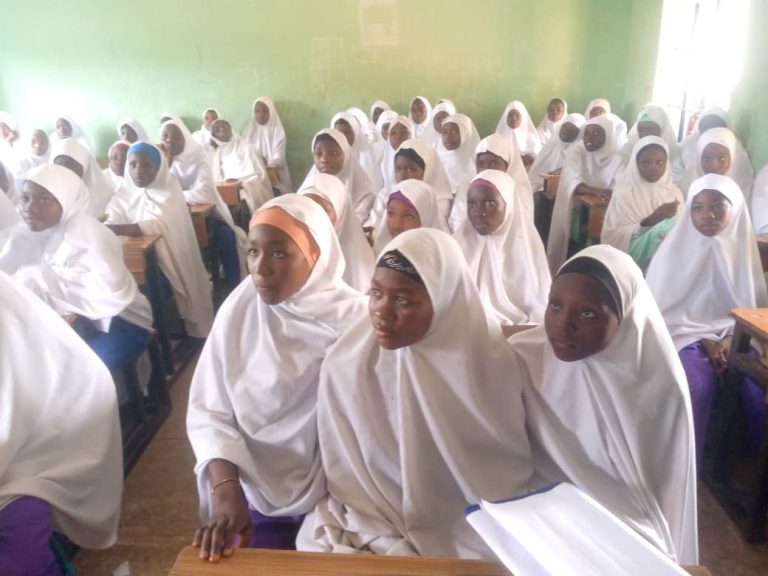A powerful synergy between the Sokoto State Government, UNICEF, and local communities is reshaping the narrative of adolescent girls in the state, as the two-year REACH programme winds down with lasting impact across six local government areas.
The initiative—Reaching and Empowering Adolescent Girls in North West Nigeria (REACH)—focused on reaching the most vulnerable girls: those who never enrolled in school, those who dropped out early, and others struggling to stay in school. But what truly set the programme apart was the deep-rooted community involvement that drove its success.
UNICEF Nigeria’s Adolescent Development Specialist, Ngozi Izuora Songu, underscored the importance of grassroots support in her remarks during a recent field visit to Bodinga.
“REACH was not just an education programme. It was about building trust within communities, working hand-in-hand with leaders, parents, and the girls themselves to identify challenges and co-create solutions,” she explained.
Implemented in partnership with the State Universal Basic Education Board (SUBEB), the programme combined education access with life skills, vocational training, and mentorship—ensuring that girls were not only in school, but thriving.
Communities at the heart of change
In Bodinga and other REACH-supported LGAs, community leaders played a crucial role in mobilising support, encouraging enrolment, and even offering spaces for training sessions. Religious leaders, women’s groups, and youth associations were also engaged to help spread the message that educating girls benefits everyone.
The number of female who graduated from Primary 6 across the 6 LGAs was 19,455, out of which a total of 14,607 in the last academic session.
One parent, Murjanatu Ibrahim, shared how her daughters’ involvement in tailoring and pastry-making through REACH sparked pride and optimism at home.
“Our community was skeptical at first. But now, we’ve seen what the girls are capable of. They’ve become focused, productive, and respected,” she said.
Personal transformations, collective progress
REACH empowered girls like Zinatu Kabir Ahmed, 15, who returned to school and now bakes to support her family, and Asmau Bala, 22, a young mother who regained her literacy and learned income-generating skills.
“It was more than just school. I feel seen, supported, and ready for life,” Asmau said.
Younger girls who remained in school were taught leadership and confidence. Saudat Babangida, 14, now aspires to become a soldier.
“This programme gave me a voice. I know I can serve and protect others,” she said.
Legacy beyond the programme
Though the REACH project is ending, its ripple effects will continue—thanks to the empowered communities and institutional linkages it fostered. Teachers, local mentors, and even older beneficiaries have pledged to sustain support for girls’ education and inclusion.
Sokoto State’s model shows that meaningful partnerships—between governments, international agencies, and local actors—can break entrenched cycles of poverty and exclusion.
The transformation of girls from silent observers to confident contributors is proof that community-led empowerment works. REACH has left behind more than graduates and artisans; it has cultivated hope, resilience, and a culture of possibility.


